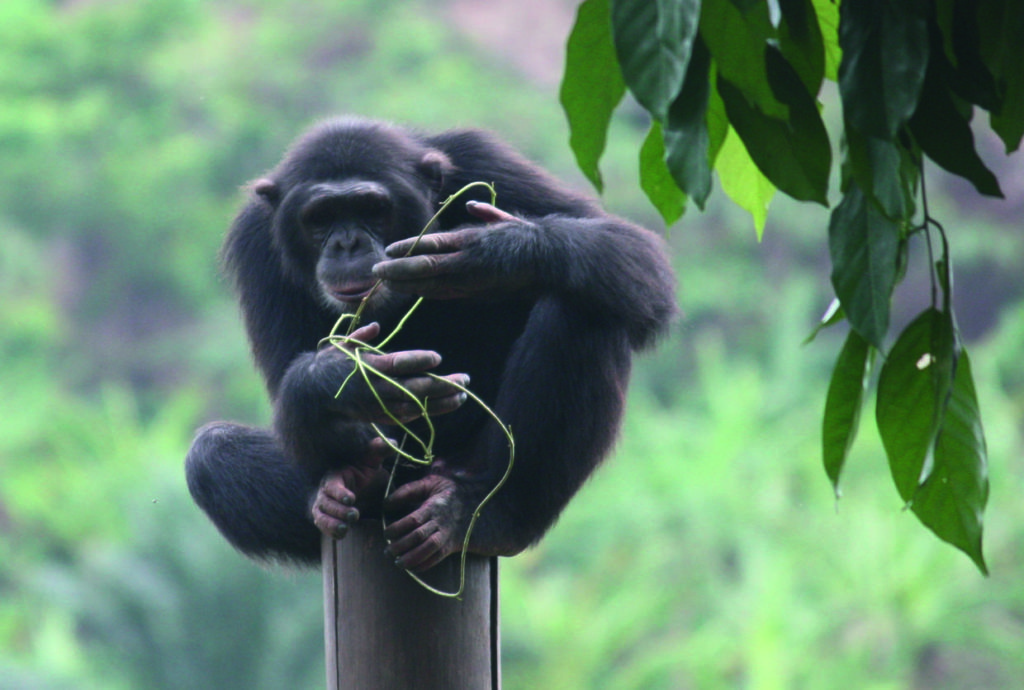[LUM#9] Chimpanzee under the influence
What could possibly drive chimpanzees into the clutches of their only predator, the leopard? Answer: Toxoplasma gondii. Researchers have shown that when these primates are infected with the toxoplasmosis parasite, they are attracted to the urine of their natural predator. This phenomenon of manipulation could also occur in humans...

You are being manipulated! "You"? By Toxoplasma gondii, the parasite responsible for toxoplasmosis. This protozoan can only reproduce in the body of a feline, but during its travels, it temporarily takes up residence in numerous "intermediate" hosts, such as mice, chimpanzees, and humans. To return to the feline and perpetuate its lineage, there is only one solution: to ensure that this intermediate host ends up in the stomach of a feline. To achieve this, it appears that Toxoplasma gondii is capable of "manipulating" its host. Studies have shown that mice infected with the parasite are attracted to cat urine, which increases their likelihood of being eaten.
Parasitic dead end
What about humans, a third of whose population is infected with the parasite? Now that humans are no longer the natural prey of other animals, the likelihood of this host ending up in the stomach of a feline is very slim. A real dead end for the parasite... "However, numerous studies suggest that infected humans also exhibit behavioral changes, such as increased reaction times and decreased concentration, " explains Marie Charpentier, a researcher atthe Institute of Evolutionary Sciences in Montpellier (ISEM).
Are these side effects of toxoplasmosis, or atavistic attempts by the parasite to escape this human impasse? To better understand these behavioral changes, Marie Charpentier and Clémence Poirotte turned their attention to humans' closest cousin, the chimpanzee, whose natural predator is still a big cat, the leopard.
Easy prey
"We observed the behavior of 33 chimpanzees, nine of which were infected with toxoplasma," explains Marie Charpentier. The researchers spread leopard urine in the primates' enclosures and observed their reactions. The verdict: "Healthy animals avoided leopard urine much more than their infected counterparts, who approached it more closely and seemed intrigued by the smell, deliberately moving toward the urine." Toxoplasma gondii thus made infected chimpanzees easier prey for the feline.
The fact that monkeys closely related to humans are indeed manipulated by the parasite suggests that the same mechanism could be at work in humans. "The behavioral changes observed in infected individuals could be remnants of ancient parasitic manipulation, from a time when our ancestors were prey to big cats."
Find UM podcasts now available on your favorite platform (Spotify, Deezer, Apple Podcasts, Amazon Music, etc.).